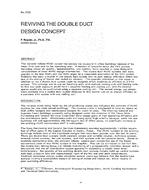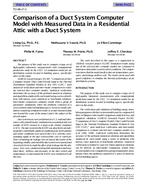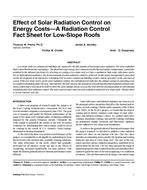Click here to purchase
The rapid progression of human sensing technology development for energy regulation in indoor spaces provides a new medium of insight for the previously difficult to replicate complexity of human behavior in Building Performance Simulation (BPS). This paper’s aims are twofold: 1) investigate the evolution and current state of BPS occupancy schedules and their connection with the errors, limitations and deviations of sensing technologies. And 2) evaluate the current viability of using low cost sensing technologies in thermal (heating and cooling) energy regulation. A simulation-based workflow measured the impact of human presence’s false sensing and provided a maximum acceptable frequency of false sensing. The goal was to identify the highest number of false positive sensing that would still outperform a targeted 30% energy loss benchmark, in order to evaluate the feasibility of deploying such sensing technologies across United States residential buildings.
Citation: ASHRAE/IBPSA-USA Bldg Simulation Conf, Sept 2020
Product Details
- Published:
- 2020
- Number of Pages:
- 11
- Units of Measure:
- Dual
- File Size:
- 1 file , 3.4 MB
- Product Code(s):
- D-BSC20-C023


